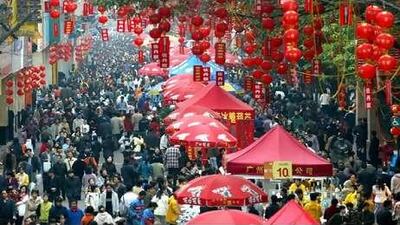This summer, China is laying on its coming-out party extravaganza - the Beijing Olympics. Word is that there's never been a better time to encounter the rising star of 21st-century Asia. During Olympic month, you will find hordes of student helpers assigned to guiding lost foreigners around the capital; everyone has been instructed to be on their best behaviour in the eyes of the world's media; rockets will even be fired into the sky in an attempt to dispel the pollution.
However, make no mistake, China is still a tough place to travel unaccompanied by a guide. Venture away from international hotels and Olympic tour groups and you'll find another China, an unseen land that once hid itself away in self-imposed isolation. But with this cultural survival guide you'll be ready for any hitches.
Though a huge effort has been put into training Beijingers in English, it's not something that comes naturally. If you want to explore China beyond the coach tours but haven't spent four years reading oriental languages at university, sooner or later you will run into a problem. Your best bet is to carry a pocket guide that comes with translations in Chinese characters - Lonely Planet's Mandarin phrase book (Dh33) isn't bad. Get to know its contents intimately so that the page you need is always at your fingertips, and always point to what you want to say rather than try to pronounce it. Chinese is a tonal language, which means that if you get the pronunciation a hair's-breadth wrong you'll be telling someone you want to sell his mother rather than buy his horse.
Another tip is to grab a hotel business card when you check in: you can then show it to taxi drivers to help them get you home.
Méi yu isn't so much a word or a phrase; it's more of an attitude. Literally translated, méi yu (sounds like "may? yo-oh") means "not have". It means "no". But whether méi yu means "no, I really am terribly sorry" or "not now, maybe later" or simply "no way" is often hard to tell. At its worst, méi yu makes even the most mundane activity - buying lunch, haggling at a market, finding a toilet - an exasperating activity (though spare a thought for the locals, who themselves will probably tire of hordes of camera-toting tourists). The trick is to smile, and to keep on smiling. Never, ever, ever lose your temper. That is a one-way route to exacerbating your problems ten-fold. To Chinese people you have lost face and forfeited any chance you may have had of getting your way.
Just go with the flow, keep your sense of humour, and things will work out in the end. If what you're after is a model of politeness, friendliness and efficiency, wait for the London 2012 games.
From downright incomprehension to touching (if bemused) generosity, the average Chinese has a rocky relationship with the influx of foreigners who are now invading from all corners. But as often as not you will be treated with respect and possibly intense curiosity. Less endearing are some Chinese habits that to others seem positively medieval, another symptom, perhaps, of the nation's long isolation from Coca-Cola culture. People spit, yes, spit, not because they are out to insult you, but because it is the Chinese way. Though the authorities are trying to stamp out the habit in Olympic city, you'll sometimes hear the long drawn out hawk of someone clearing his throat and see foamy little puddles on the pavement. Don't let it upset you. Half the world's football players spit too, and they get away with it. Repeat to yourself: "I am among another people, whose customs are unlike my own" a few times. You'll be fine.
Also be aware of the Chinese attitude to personal space. There isn't one. This is a very crowded country: there are 1.3 billion people and that figure is rising every day. The Chinese are used to limited resources and, despite vigorous government commercials on politeness, if they are focused on something they may not think twice about brushing you out of the way. Commuters actually run for empty seats when an underground train pulls up. Expect the same in queues, especially if opportunity is limited. Crowds may push, shove and elbow their way onto already tightly-jammed buses - especially, it seems, crowds of little old ladies. Moreover, there is no such thing as a "no smoking" area in China, even where it clearly says "no smoking". And remember that every single male from 18 to 80 smokes thick, heavy cigarettes with names like "Double Happiness" or "Wild Horse". You probably won't notice it, what with all the smog.
There's so much more on offer than the chop suey at your local takeaway, and sampling China's varied cuisine can be among the most rewarding parts of your experience. The best eateries are found off the tourist trail in the back alleys and "hutongs" of old Peking. For a real treat seek out a Xinjiang restaurant, where people from the Muslim west serve up a delicious fusion of Chinese and central Asian styles.
Chopsticks: learn to use them. Not every restaurant can issue knives and forks, and eating with your hands is seen as most uncouth outside fast-food joints like McDonalds and KFC (which exist in abundance). Chinese food is best enjoyed by large groups. Always share, order more than you can eat (it's unsophisticated not to leave leftovers, or to order too much rice) and be prepared for more than the odd bone, chunk of fat or chicken foot. Finally, don't leave your chopsticks sticking up out of your bowl - it's an omen of death.

